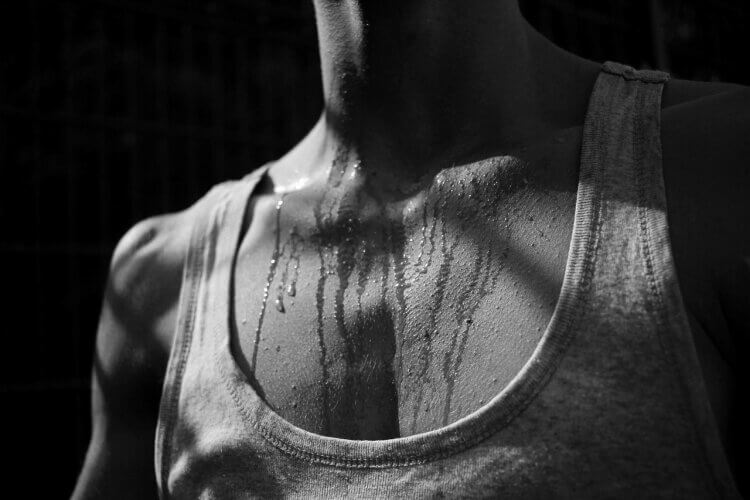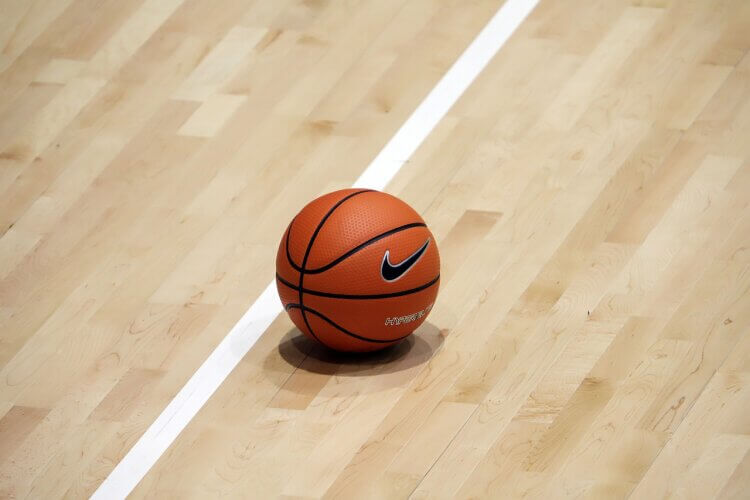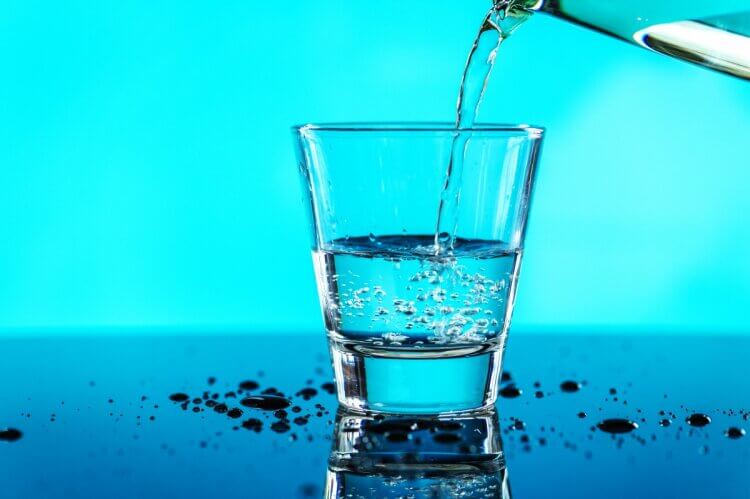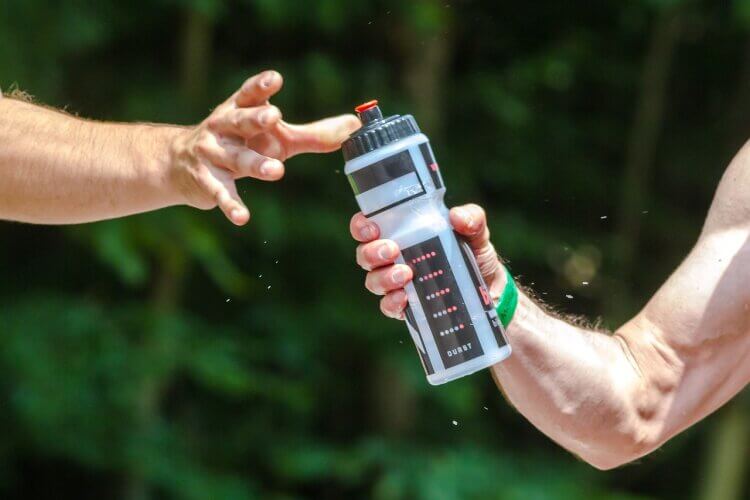(2 Minute Read)
Proper hydration is a key component of effective athletic performance. However, the importance of hydration during a basketball practice or a game is often overlooked by athletes and their coaches. Many players don’t recognize the effect dehydration has on their on-court performance.

As little as a 2% body weight loss during practice/game can reduce decision-making and basketball-specific skills, slow response times and cause tiredness to occur faster (Baker, Conroy, & Kenney, 2007; Baker, Dougherty, Chow, & Kenney, 2007; Dougherty, Baker, Chow, & Kenney, 2006). Therefore, it is necessary for players to enter a game well-hydrated and maintain hydration throughout the game, as the result of the game may depend on split-second decisions in the closing minutes.

Sweat Rate and Fluid Intake In Basketball
Studies show many basketball players are entering games dehydrated (Osterberg, Horswill, & Baker, 2009). Adult and high school players on average lose 67-152 oz. of sweat over the course of a 2-hr practice and 33-155 oz. during a game (Dougherty et al., 2006). While these sweat rates (at the upper end) may seem high, these large losses are manageable if players are careful to drink the right amount of fluid throughout practices/games. However, studies show players typically only consume ≈50% of what they lose during practices/games (Broad, Burke, Cox, Heeley, & Riley; 1996; Osterberg et al., 2009). Players often misjudge the amount of fluid lost and might be dehydrated, even though they do not feel thirsty.

Recommendations
To maintain proper hydration, consider the following suggestions:
- Start each practice/game fully-hydrated. A simple way to determine proper hydration is to look at the color of your urine before practice/game. It should be a light color (lemonade color). If your urine is a darker color (apple juice color), you are most likely dehydrated. Also make sure you are not overly hydrated, which can also hurt performance. If you are going to the bathroom often (every 45 mins) you are probably drinking too much.
- Drink regularly throughout practices/games. A general recommendation for adults and teenagers is to drink 6-8 oz. every 15 minutes.
- Consider your sweat rate, practice/game intensity, and the environmental conditions (in-season game vs. summer tournament) and adjust how much you drink accordingly.
- Monitor pre- and post-practice/game weight. A weight loss of ≥2% indicates fluid consumption is too low. For every pound of weight loss after practice/game, 16-20 oz. of fluid should be consumed over the next few hours. If you are expending a lot of energy (playing at a high intensity and/or the duration of play is ˃90 minutes), a sports drink is recommended to replenish carbohydrates and electrolytes.
- Stay away from energy drinks, soda, and caffeinated beverages, as they may cause dehydration and lower performance.
- Coaches and training staff also play key roles in keeping players properly hydrated. Coaches need to schedule enough water breaks in practice and encourage players to drink regularly throughout games, during time-outs, and when players are recovering on the bench.
Following these recommendations can give you a performance advantage over your opponent the next time you step onto the court.

References
Baker, L. B., Conroy, D. E., & Kenney, W. L. (2007). Dehydration impairs vigilance-related attention in male basketball players. Medicine & Science in Sports & Exercise, 39(6), 976-983.
Baker, L. B., Dougherty, K. A., Chow, M., & Kenney, W. L. (2007). Progressive dehydration causes a progressive decline in basketball skill performance. Medicine & Science in Sports & Exercise, 39(7), 1114-1123.
Broad, E. M., Burke, L. M., Cox, G. R., Heeley, P., & Riley, M. (1996). Bodyweight changes and voluntary fluid intakes during training and competition sessions in team sports. International Journal of Sport Nutrition and Exercise Metabolism, 6(3), 307-320.
Dougherty, K. A., Baker, L. B., Chow, M., & Kenney, W. L. (2006). Two percent dehydration impairs and six percent carbohydrate drink improves boys basketball skills. Medicine & Science in Sports & Exercise, 38(9), 1650-1658.
Osterberg, K. L., Horswill, C. A., & Baker, L. B. (2009). Pregame urine specific gravity and fluid intake by National Basketball Association players during competition. Journal of athletic training, 44(1), 53-57.
